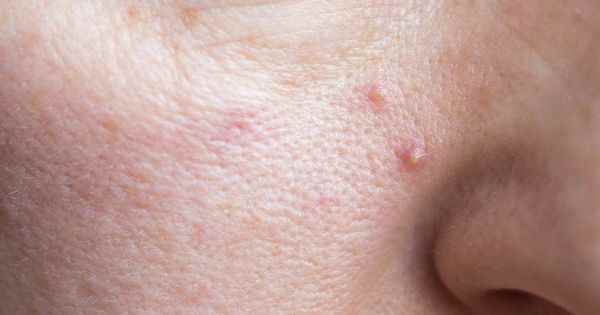Published ,
Reading 2 mins.
Nearly thirty genes have been identified as being responsible for the occurrence of acne in humans. An advance that can allow scientists to better diagnose this dermatological disease and find new treatments.
It was an international group of researchers who made the discovery. The scientists carried out a meta-analysis of nine studies totaling more than 20,000 people affected by acne and more than 500,000 others who were not affected by this dermatological condition. Their work was published on February 7 in the journal Nature.
29 new acne genes discovered
To achieve these results, the researchers looked at the results of these different studies. This work enabled them to discover 29 new genes in participants with acne that would be at the origin of this pathology. They also confirmed the presence of 14 of the 17 known genetic variants associated with acne. Bringing the total number of known acne-causing genes to 46 now.
Too little advanced work in the field
Acne is a common pathology, it is estimated that 80% of adolescents are affected by this dermatological condition. Scientists believe that “severely inflamed lesions can leave permanent scars that have been associated with long-term psychosocial consequences”. However, scientific advances to effectively treat this pathology are lacking.
“Despite major advances in the treatment of other skin conditions, progress in the area of acne is limited” said Catherine Smith, author of the work and Professor of Dermatology at St John’s Institute of Dermatology, London, UK. It was this observation that prompted him to work on the subject.
Consult a dermatologist online
Towards new treatments or genetic screening?
Their discovery now opens the door to the development of new treatments, or the possibility of detecting patients genetically more at risk of developing this type of pathology. “We know that the causes of acne are complex, with a mix of biological factors such as genetics and hormones, and environmental factors. Understanding the genetics of the condition will help us unravel some of these causes and find the best way to treat the condition.” concluded Michael Simpson, head of the genomic medicine group at King’s College London and one of the authors of this meta-analysis.
